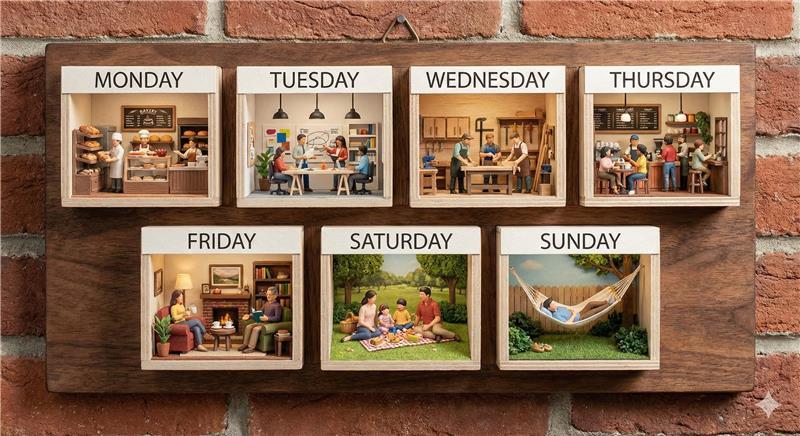How to Know If a Four-Day Workweek Is Right for Your Business
The four-day workweek has become one of the most talked-about workplace shifts of the last decade. Large corporations are experimenting with it....

Growth sounds great—until it puts your business at risk.
Have you ever felt like you should be growing faster? Before you chase big revenue numbers, there’s something you should know: growth done wrong can destroy a business.
A finance professor at Cal State once analyzed 2,000+ public companies. The ones with the fastest growth—an average 167% increase in sales year-over-year—actually underperformed their slower-growing competitors when it came to shareholder value.
Translation?
Just because a business is growing fast doesn’t mean it’s growing smart. Growth only works when it’s strategic, sustainable, and backed by solid planning.
This article kicks off a new series where we’ll walk through what it takes to grow the right way—starting with what you need to have in place before you hit the gas.
Let’s start with the obvious: growth is good—but not all growth is created equal.
For most small businesses, healthy growth means about 10% revenue increase per year. But there’s no magic number. What matters most is that your expenses don’t outpace your sales and that you can grow without burning out your team, your systems, or yourself.
Want to grow 30% instead of 10%? Great—just know the plan will look very different. That’s why your financials matter so much.
You can’t create a meaningful forecast or measure sustainable growth unless your books are clean and your numbers are dialed in.
You can’t delegate growth.
Scaling up takes hands-on work—from planning and forecasting to training, hiring, and refining processes. If you're stuck in day-to-day operations, you're not in a position to grow well.
This is where working with a CPA or advisor can make a huge difference.
Growth without cash flow is a fast track to chaos.
Here’s what you need to look at:
Bottom line: If I sell more, will I make more? Not just more revenue—but better margins.
More sales won’t fix bad math.
Your profit margins, overhead, and customer acquisition costs don’t magically get better with size. If you’re not making a solid return on each dollar spent, growing faster won’t help—you’ll just bleed faster.
Run the numbers.
Talk with your financial advisor. Review your P&L. If the ROI isn’t moving in the right direction, something has to change before you grow.
This one’s big. Especially right now.
Having the demand, supplies, and money doesn’t mean a thing if you don’t have the people.
Ask yourself:
Plan for the people part, not just the dollars and tools.
Your vendors may be used to delivering a certain quantity at a certain price. But what happens when you need more?
Don’t wait until the last minute to find out. A solid growth strategy doesn’t just depend on what you sell—it depends on who can keep up with you when demand ramps up.
You might feel fired up about your projections—but has anyone else looked at them?
A good advisor won’t just double-check your math.
They can help you:
But it’s not something to wing, either.
If you’re thinking about expanding, scaling, or just increasing volume, start with these six checkpoints. They’ll save you from a lot of pain—and set you up for growth you can actually sustain.
Want help reviewing your numbers or building your forecast? Click the Let's Chat button to schedule a discovery call.

The four-day workweek has become one of the most talked-about workplace shifts of the last decade. Large corporations are experimenting with it....

We've all seen the headlines. Another major company announces that everyone needs to be back at their desk. No exceptions. And if you're running a...

If you work with a payroll provider for your small business, payroll typically runs on a set schedule with very little day-to-day involvement from...